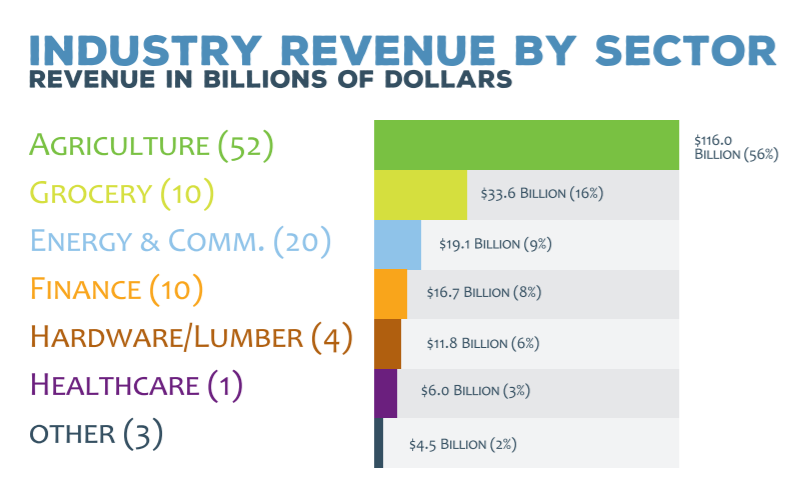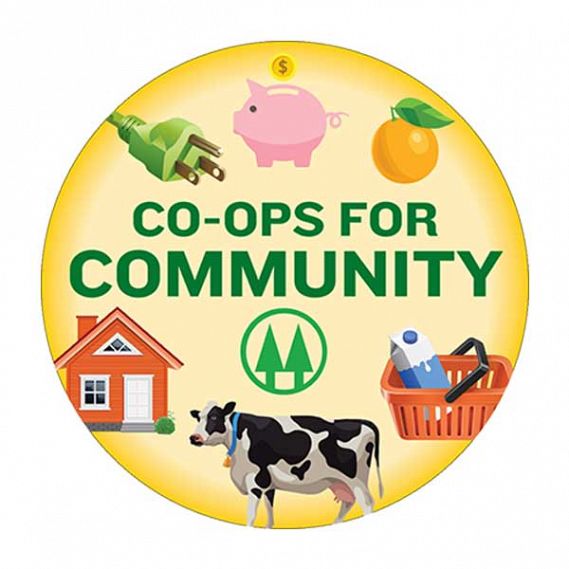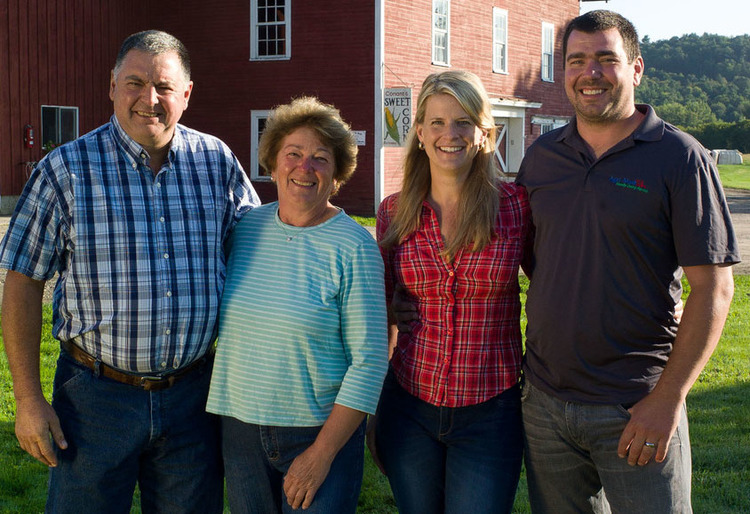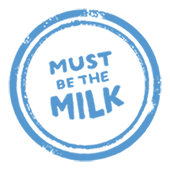Have you ever wandered down the aisle of your local grocery store and come across products proudly displaying the phrase “Member-Owned”? Have you heard the word “co-operative” and wondered what, exactly, makes a “co-op” different from other types of businesses? Co-operatives or, “co-ops” have a long and rich history as business and organizations world-wide, and many of them are responsible for producing the foods we consumers love to eat!
A co-operative is defined by the International Co-operative Alliance as, “an autonomous association of persons united voluntarily to meet their common economic, social, and cultural needs and aspirations through a jointly-owned and democratically-controlled enterprise” or, put another way, an organization that is owned and governed by the members of that organization. Co-operatives span a wide variety of business types from banks to grocery stores to utility companies! Today 1 in 3 Americans are members of a co-op in a variety of industries shown below.

While their purposes vary, every co-operative agrees to abide by seven principles of co-operative management. The basic idea behind a co-operative is that a group of individuals working together are more effective than a single individual working on their own to accomplish the same goals. Because each member of a co-operative is also an owner, everyone benefits everyone equally from profit-sharing, combined buying power and economies of scale.
Co-operatives exist across the spectrum of agricultural businesses, and dairy co-operatives were some of the first co-ops organized in the United States – the first co-operative creamery was established in Goshen, Connecticut in 1801. It takes a lot of milk to supply customers’ need for milk, cheese, and yogurt and so farmers saw the opportunity to save time, money, and provide a more consistent and regionally unique product. They organized co-operatives around creameries and distribution services to get milk from cow to customer. There are a number of farmer co-operatives that operate throughout New England of various sizes, from a few members to about 500 member farms!

Being a member of a co-op provides farmers with a host of benefits including ease of distribution, processing, and marketing. Alison Kosakowski Conant, a member of the Cabot Creamery Co-operative, makers of Cabot cheese, detailed some of the best parts about being a part of the co-op:
“There are so many things to manage on a farm every day – keeping cows healthy and happy, growing and harvesting crops, working with staff, maintaining equipment, balancing the books, delivering baby calves, and more… It’s a lot of work for farmers to get fresh, healthy milk into the bulk tank, so the milk truck driver can pick it up once a day and deliver it to the processing plant… [and] that product needs to be safely processed, packaged, transported, distributed, and marketed. While there are some farms that do a terrific job with this [on their own], many others choose to focus on what they know best – dairy farming. The co-op [allows us to focus on farming and] also advocates for farmers and obtains the best possible market price for our milk.” But the farm business isn’t the only part that benefits from membership in a co-operative; according to Kosakowski, “The co-op is a community of farmers who support each other and look out for our collective interests. In a time when very few people make an active living on the farm, the co-op provides a community of folks who share a common purpose and lifestyle.”

Co-operatives are an important part of the agricultural landscape… you can feel good about supporting the dairy farming families of New England whenever you see the “Member-Owned and Operated” stamp on any product you purchase! Dairy co-ops sell milk to many different customers or brands. Here are some of the dairy co-operatives in New England and just a few examples of the brands their member’s milk is sold under:
Agri-Mark – Cabot Creamery Co-operative, McCadam Cheese
Central Vermont Producers Association – Booth Bros. Milk
Dairy Farmers of America – Guida’s Dairy, Oakhurst Dairy
St. Albans Co-operative Creamery – Ben & Jerry’s, Horizon Organic, Vermont Creamery

